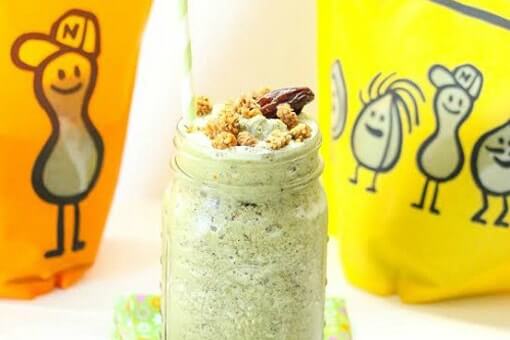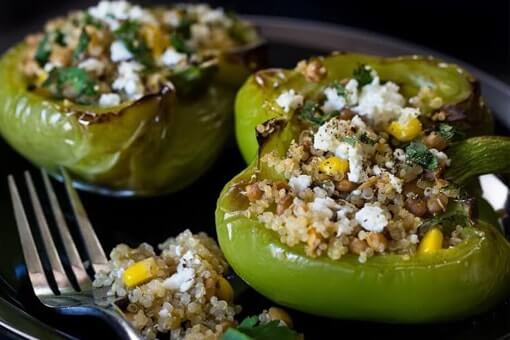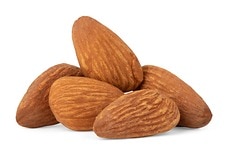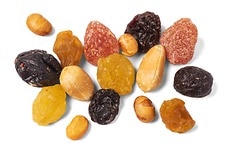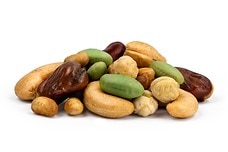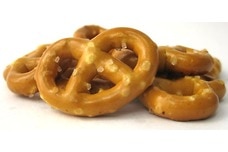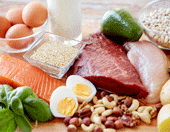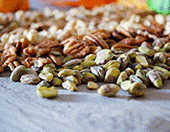Planning the Perfect Post-Workout Meal: Nutrition, Recipes & More
During a workout, the body’s cells experience increased metabolic demand. This translates to a higher consumption of the macronutrients that contribute to your body’s energy supply. Though this elevated expenditure of energy may be sparked by your exercise, even after your session ceases, the metabolic demand remains.
So, how do you know how much of which nutients are needed to meet these demands? Though many factors will affect your exact aims for that post-workout meal, the type of workout and your pre-workout nutrition are two of the most significant considerations.
Wait- but isn't post-workout nutrition incredibly intricate? Doesn't it require the perfect balance of branch chain amino acids and dextrose delivered with equally perfect timing? Well, yes and no.
For athletes that are working out in the morning after a period of fasting, in accordance with a bodybuilding diet, 0.4 grams of protein per kilogram of lean body mass combined with some simple carbohydrates (most any protein shakes or full meals should supply an adequate amount) should be consumed within two hours of a workout (Aragon & Schoenfeld, 2013).
When not fasting, it is only essential to ensure that your body has this protein available proximal to a workout, meaning a meal or shake that delivers adequate protein before or after your session should suffice.
Because an excess amount of protein ingestion does not create significant problems, we recommend consuming smaller pre- and post-workout meals that each meet the protein recommendations for your weight.
Alternatively, for post-workout nutrition after an endurance workout, such as an enduring run or swim at an accelerated pace, the emphasis should be placed on consuming adequate carbohydrates to replace the energy used.
Consuming a snack with a combination of carbohydrates and some protein after exercising increases the rate of muscle glycogen storage, providing larger stores of energy to fuel the next bout of activity (Zawadzki et al., 1992). Eating carbohydrates also increases the production of insulin and promotes muscle repair (Berardi, 2015).
Try to get 0.8 grams of carbohydrates per kilogram of body weight after an aerobic workout (van Loon et al., 2000). For a 160-pound (72.5 kg) person, this translates to 58 grams of carbohydrates.
To meet either need, the five meals listed below provide a healthy balance of macros to help your body recover. Try some of these simple recipes today!
Top 5 Post-Workout Meals
The Best Post-Workout Meal to Maximize Recovery
Taken together, scientific evidence supports the use of a healthy post-workout meal to replenish lost nutrients and stimulate muscle recovery. Of course, you do not want to offset the hard work you just completed by loading on the calories. Those that are not aiming to build muscle should limit their intake to between 200 and 300 calories to refuel the body, paying close attention to the nutritional content of their collation. This is aligned with the recommendation for athletes to eat 5-6 smaller meals throughout the day.
Protein shakes or smoothies are a popular and convenient way to support your post-workout metabolic needs. When selecting protein shake powders consider the source of the protein and consider it in the context of your overall daily intake. Also, if you are an athlete at a collegiate, elite, or professional level, be aware of supplement regulations specific to your level of sports to ensure the protein shake (or any other supplements) that you are taking is within your sports regulations.
Another convenient and affordable option for post-workout refueling is chocolate milk, which provides a combination of carbohydrates and protein to refuel tired muscles. Plus, it provides other essential nutrients including potassium, vitamin D, vitamin A, and B-vitamins.
Additional Considerations for Enduring Workout Sessions

During aerobic and anaerobic exercise, the body shifts through fuel sources depending on the intensity and duration of the activity. For example, the body has about 2 hours worth of stored carbohydrates (aka glycogen) to fuel moderate to high-intensity exercise, after 2 hours the athlete will need to replenish carbohydrates with food or drinks to maintain the intensity level without “hitting the wall.”
Without this additional sustenance, it will be necessary to dial back the intensity and switch to burning fat as fuel. It should also be noted that, under normal circumstances, the body does not metabolize protein during exercise (Quinn, 2016).
Additionally, during any workout, you have likely lost some fluid from sweat, so it’s important to remember to replenish fluid stores in the recovery period and throughout longer workouts. How much fluid you need will vary depending on the amount of fluid lost.
For more ideas on the nutritional needs elicited by your workout routine, check out our pages on pre- and post-workout snacks, high-protein snacks, protein shakes, and high-protein foods!
Recipes for Post-Workout Snacks
Preparing a plate that provides the perfect provision of protein, carbs, and fats is essential, so we invite you to use these simple recipes to do so. Each selection is low in calories and rich in both starches and protein to provide the perfect fuel for your recovery!
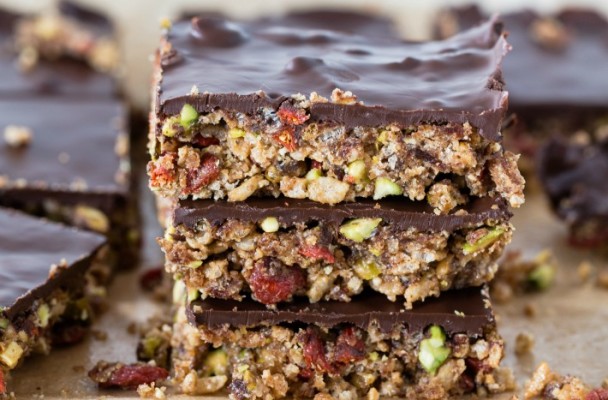
Chocolate Goji Berry Bars Recipe {gluten-free}
These scrumptious snacks supply the rich savor of dark chocolate with a blend of superfoods that each bring essential nutrients to the table! Add a scoop of hemp protein powder for optimal benefits and enjoy this replenishing collation after your morning workout to power you through the workday!
Ingredients: Pitted dates, almond butter, quinoa puffs, goji berries, raw pistachios, coconut oil, dark chocolate chips.
Total Time: 20 minutes
| Yield: 8 bars
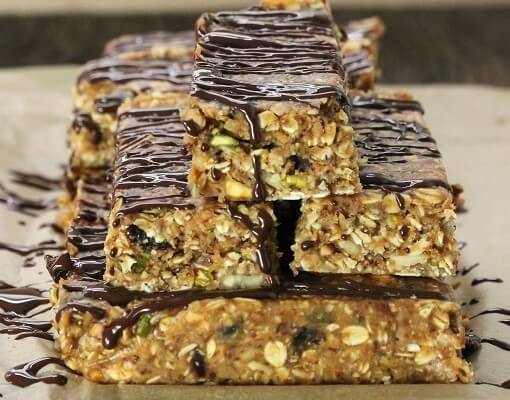
No-Bake Granola Bars Recipe {gluten-free, vegan}
A chewy treat that is fun to eat, this delicious granola bar is packed with complex carbohydrates and protein in a compact and lightweight package. This snack only takes minutes to make and can also be used as pre-workout bite!
Ingredients: Gluten-free rolled oats, peanut butter, dried tart cherries, pistachios, flaxseed meal, walnuts, pumpkin seeds, sunflower seeds, agave syrup. unsweetened applesauce, melted cacao nibs or dark chocolate.
Total Time: 15 minutes
| Yield: 8 - 10 servings
Post-Workout Snacks
These snacks supply a combination of carbohydrates, protein, and fat plus they are quick and simple to pack on the go! Stock up on some of the snacks below to always have a perfect portion ready for your post-workout needs.
Healthy Eating
- Healthy Snacks
- Healthy Highlights
- 5 Uses for Cacao Powder
- 5 Ways to Eat Farro
- 6 Best Gluten-Free Foods
- Alcohol and the Body
- Almond Flour Recipes
- Anti-Aging Superfoods
- Beat the Afternoon Slump
- Benefits of a Plant-Based Diet
- Benefits of Baobab
- Benefits of Cashews
- Benefits of Coconut Oil for Hair
- Benefits of Coconuts
- Benefits of Dates
- Benefits of Fenugreek
- Benefits of Garcinia Cambogia
- Benefits of Goji Berries
- Benefits of Kale Chips
- Benefits of Monk Fruit Sweetener
- Benefits of Peanuts
- Benefits of Pecans
- Benefits of Pistachios
- Benefits of Pumpkin Seeds
- Benefits of Spelt Flour
- Benefits of Steel Cut Oats
- Benefits of Sunflower Seeds
- Benefits of Tiger Nuts
- Benefits of Turmeric
- Benefits of Walnuts
- Benefits of Wheatgrass
- Best Food Fads
- Cacao vs Cocoa
- Caffeine-Free Energy Foods
- Chocolate That's Good for You
- Diet vs. Exercise
- Fat Burning Foods
- Food Myths Debunked
- Foods for Bone Density
- Foods for Colon Health
- Foods for Healthy Hair
- Foods for Healthy Skin
- Foods to Help Sleep
- Foods to Reduce Stress
- Green Tea Benefits
- Healthy Baking Flours
- Heart Healthy Habits
- High Protein Health Risks
- How to Boost Your Metabolism
- How to Lose Weight While Aging
- How to Throw a Vegan BBQ
- Kaniwa vs Quinoa
- Little Health Foods
- Low-Carb: Fad or Friend?
- Making Healthier Desserts
- Mediterranean Diet Meal Plan
- Natural Beauty Products
- Nuts for Weight Loss
- Preparing Vegan Meals
- Preventing Muscle Degeneration
- Rare Superfoods
- Reduce Sugar Intake
- Save Time By Going Vegan
- Smarter Snack Swaps
- Smoothie Ingredients
- Soy Protein vs Whey Protein
- Starting a Plant-Based Diet
- Steel Cut vs Rolled Oats
- Sugar Substitutes
- Vegan Proteins
- Vegan Substitutions for Fall Recipes
- Why Go Vegan
- Healthy Meals
- Healthy Recipes
- Nutrition and Special Diets
- 21 Day Fix
- 5 Popular Diet Similarities
- Alkaline Diet
- Anti-Inflammatory Diet
- Calorie Counting
- Carb Cycling Diet
- Celiac Disease
- Cholesterol
- Clean Eating
- Crohn's Disease
- DASH Diet
- Detox Diet
- Diabetes
- Diabetes Diet
- Diet Pill Dangers
- Fat Burning Foods
- Gluten-free Diet
- Glycemic Index
- Heart Health
- High Blood Pressure Diet
- High Fiber Foods
- How to Eat Healthy
- How to Lower Blood Pressure
- Hypertension
- IBS Diet
- Ketogenic Diet
- Liquid Diet
- Low GI Foods
- Low-Carb Diet and Foods
- Low-Fat High-Carb Diet
- Mediterranean Diet
- Mediterranean Diet Foods
- Military Diet
- Nutrition Labels Explained
- Paleo Diet
- Raw Food Diet
- Superfoods
- Sustainable Weight Loss
- Thrive Diet
- Vegan Diet
- Vegetarian Diet
- Weight Loss Shakes
- Whole30
- Vitamins, Minerals & Nutrients
We'd love to hear your thoughts



